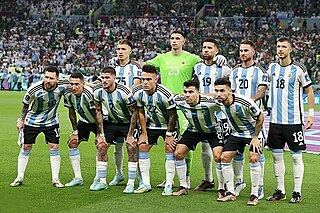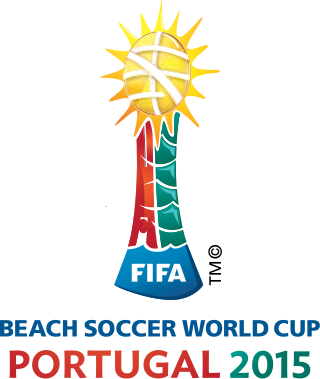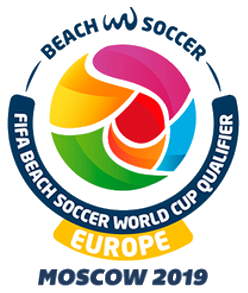
The FIFA World Cup, often simply called the World Cup, is an international association football competition between the senior men's national teams of the members of the Fédération Internationale de Football Association (FIFA), the sport's global governing body. The tournament has been held every four years since the inaugural tournament in 1930, with the exception of 1942 and 1946 due to the Second World War. The reigning champions are Argentina, who won their third title at the 2022 tournament.

The Spain national football team has represented Spain in international men's football competitions since 1920. It is governed by the Royal Spanish Football Federation, the governing body for football in Spain.
The FIFA Club World Cup is an international men's association football competition organised by the Fédération Internationale de Football Association (FIFA), the sport's global governing body. The competition was first contested in 2000 as the FIFA Club World Championship. It was not held from 2001 to 2004 due to a combination of factors in the cancelled 2001 tournament, most importantly the collapse of FIFA's marketing partner International Sport and Leisure (ISL), but since 2005 it has been held every year, and has been hosted by Brazil, Japan, the United Arab Emirates, Morocco and Qatar. Views differ as to the cup's prestige: it struggles to attract interest in most of Europe, and is the object of heated debate in South America.
The FIFA Beach Soccer World Cup is an international beach soccer competition contested by the national teams of the member associations of FIFA, the sport's global governing body. The tournament was preceded by the Beach Soccer World Championships established in 1995 which took place every year for the next decade under the supervision of Beach Soccer Worldwide (BSWW) and its predecessors. FIFA joined hands with BSWW in 2005 to take over the organization of the competition, re-branding it as an official FIFA tournament.

The 2008 FIFA Beach Soccer World Cup was the fourth edition of the FIFA Beach Soccer World Cup, governed by FIFA. Overall, this was the 14th edition of a world cup in beach soccer since the establishment of the Beach Soccer World Championships which ran from 1995–2004 but was not governed by FIFA. It took place in Marseille, France, in the Plages du Prado from 17 to 27 July 2008. It was the first tournament to take place outside Brazil.

The 2009 FIFA Beach Soccer World Cup was the fifth edition of the FIFA Beach Soccer World Cup, governed by FIFA. Overall, this was the 15th edition of a world cup in beach soccer since the establishment of the Beach Soccer World Championships which ran from 1995 to 2004 but was not governed by FIFA. It took place in Dubai, the United Arab Emirates between 16 November and 22 November 2009. It was the second tournament to take place outside Brazil, first to be played in Asia, and the last tournament to take place on an annual basis.

The 2002 Beach Soccer World Championships was the eighth edition of the Beach Soccer World Championships, the most prestigious competition in international beach soccer contested by men's national teams until 2005, when the competition was then replaced by the second iteration of a world cup in beach soccer, the better known FIFA Beach Soccer World Cup. It was organised by Brazilian sports agency Koch Tavares.
The 2008 FIFA Beach Soccer World Cup CONMEBOL qualifier, also later and commonly known as the 2008 South American Beach Soccer Championship, was the second Beach Soccer World Cup qualification championship for South America, held from April 23–27 in Buenos Aires, Argentina.
2014 in sports describes the year's events in world sport.

The 2011 FIFA Beach Soccer World Cup was the sixth edition of the FIFA Beach Soccer World Cup, governed by FIFA. Overall, this was the 16th edition of a world cup in beach soccer since the establishment of the Beach Soccer World Championships which ran from 1995–2004 but was not governed by FIFA. It took place at the Stadio del Mare, a temporary stadium at the Marina di Ravenna in Ravenna, Italy, the third tournament to take place outside Brazil, which started on September 1 and ended on September 11, 2011. However this was the first tournament to take place under the new two year basis; now the FIFA Beach Soccer World Cup takes place once every two years. The tournament was confirmed in March 2010.
The 2011 FIFA Beach Soccer World Cup qualifiers for UEFA was a beach soccer tournament played in Bibione, Italy from July 11–18, 2010, which determined the four teams that qualified to the 2011 FIFA Beach Soccer World Cup in Ravenna, Italy. All matches were played at a temporary stadium on the beach at Piazzale Zenith in Bibione. The draw for the group stage of the competition was made at the end of June, 2010.

The FIFA Beach Soccer World Cup – Europe qualifier is a beach soccer championship that takes place to determine the nations who will represent Europe at the upcoming edition of the FIFA Beach Soccer World Cup. It is contested between the senior men's national teams of the members of UEFA.

The Morocco national beach soccer team represents Morocco in international beach soccer competitions and is controlled by the Royal Moroccan Football Federation, the governing body for football in Morocco.

The CONCACAF Beach Soccer Championship is the main championship for beach soccer in North America, Central America and the Caribbean, contested between senior men's national teams of the members of CONCACAF. It is the sport's version of the better known CONCACAF Gold Cup in association football.

The 2015 FIFA Beach Soccer World Cup was the eighth edition of the FIFA Beach Soccer World Cup, the premier international beach soccer competition for men's national teams, which has been organized by FIFA since 2005. Overall, this was the 18th edition of a world cup in beach soccer since the establishment of the Beach Soccer World Championships which ran from 1995 to 2004 but was not governed by FIFA. It was also the third edition to take place under the biennial system introduced in 2009.

The 2017 FIFA Beach Soccer World Cup was the ninth edition of the FIFA Beach Soccer World Cup, the premier international beach soccer championship contested by the men's national teams of the member associations of FIFA. Overall, this was the 19th edition of a world cup in beach soccer since the establishment of the Beach Soccer World Championships which ran from 1995 to 2004 but was not governed by FIFA. This was the fourth tournament to take place under the biennial basis; the World Cup now takes place once every two years, after taking place on a yearly basis until 2009.
The following were the scheduled events of association football for the year 2018 throughout the world.
The following were the events of association football for the year 2019 throughout the world.

The 2019 FIFA Beach Soccer World Cup qualifiers for UEFA was a beach soccer tournament contested by European men's national teams who are members of UEFA that determined the five nations from Europe that qualified to the 2019 FIFA Beach Soccer World Cup in Paraguay.
The 2021 FIFA Beach Soccer World Cup qualifiers for UEFA was a beach soccer tournament contested by European men's national teams who are members of UEFA that determined the four nations from Europe that qualified to the 2021 FIFA Beach Soccer World Cup in Russia.












